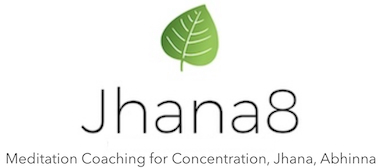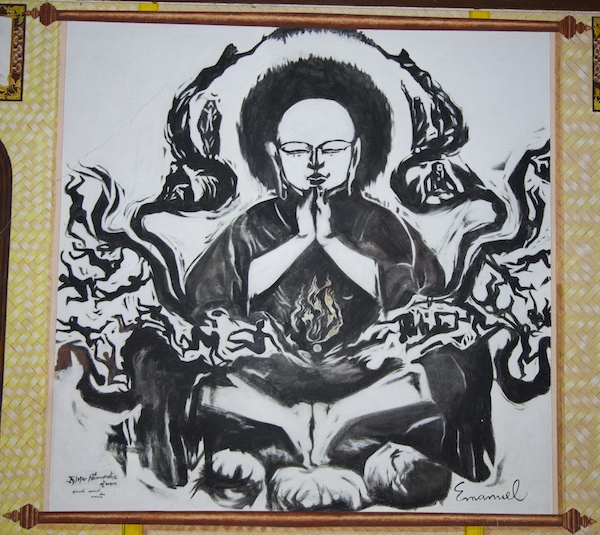
Probably the most helpful meditation tip I could give to anyone either beginning meditation, or someone who has done it for years is to… Forget about rules. No, really.
Why Forget About Rules in Your Meditation Practice?
1. You’re Different from Everyone Else. Your mind is different. How active it is when you sit down to meditate is different than others. It’s qualitatively different too. Your mind isn’t like Buddha’s mind, it isn’t like Vern’s mind, or your friend’s mind. It’s yours, and it will act a bit differently when confronted with meditation. You may slide right into it, or you might need to beat your mind into submission (gently, of course) through dozens or hundreds of sitting sessions before it calms down enough to allow you some periods of concentration.
When you listen to others tell you how you should be progressing according to how most other people do – then it impedes your progress. Go at your own pace, follow no rules or musts, but use some simple guidelines to point you in the right direction.
2. Rules Are Not Only Unnecessary, but they Impede Your Progress. I have looked at meditation from a practitioner’s perspective, a teacher’s perspective, and a student’s perspective over here in Thailand where I can speak with someone about meditation daily – monks, nuns, and abbots of temples.
What I have found is that the more someone is wrapped up in a religion – Buddhism or anything else that resembles religion, the less likely they are to progress with meditation at all. Really. I have talked to countless Theravada Buddhist monks who have not had any Jhana experiences at all.
The problem is that Buddhism isn’t necessary for progression through meditation. A teacher is not even necessary for some. I didn’t have anybody or anything to teach me except the basic outline of what the Buddha did. I removed all superfluous rules, superstitions, vocabulary, and magical thinking – and progressed through meditation very quickly in about a year.
3. Many Rules are Flat Out Wrong. Some Buddhist temples have their monks follow over two-hundred rules in order to remain ordained as monks. The thinking is that the stricter behavior one follows, the easier it is to reach enlightenment, and the easier to progress through meditation whether or not one is ever to get close to nibbana.
Problem is, Buddha already showed that for him at least, self sacrifice wasn’t the key to progressing through meditation. In fact, he didn’t progress much at all by denying himself food or water, sleep, or comforts. It was only after he gave that up that he was able to sit and concentrate fully and get into the Jhanas and eventually stumble into enlightenment.
Some temples, some teachers, are still following the practice of excessive rule-making and as a result their monks and nuns are not getting very far very fast.
So, what exactly do I mean about forgetting about rules – which rules?
Basically, anything that tells you that you must do something one way or another.
Here’s something you might find interesting. These are my own beliefs, based on my own experience while meditating.
These Behaviors Don’t Matter in Meditation
- excessive eating, what you eat, binge eating, eating meat
- cursing
- physical exercise
- masturbation, sex, thinking about sex, looking at sex photos or movies, homosexuality
- right speech, right action, right thinking, right anything
- smoking, chewing tobacco, biting your nails
- drinking alcohol (moderately – not getting plastered nightly)
- probably smoking pot has no effect at all (don’t know personally, because I didn’t)
- working hard
- living at home, meditating at home and never attending a temple or meditation group
- praying, chanting, saying mantras
I was trying hard to think of some more behaviors that don’t really matter at all in relation to progress during meditation, but that was all I could come up with. How you act outside of meditation can have some effect, but there is more effort and thought involved in trying NOT to do these things than really matters.
Don’t put any energy into what you shouldn’t be doing according to any teacher or system.
Behaviors that Matter for Progressing Through Meditation:
- meditating once daily for around 20 minutes per session, more if you feel like it
- winding the body and mind down to the point of being able to concentrate on the breath
- no strong or even weak belief in magical thinking, superstition of any kind, or strict rules
- ability to continually let go of anything that enters the mind and tries to pull you away from concentrating on the breath – thoughts, emotions – especially fear, pain, tickles, any sense objects
- mindfulness during the day as you can – being connected to the body and reality with your mind… realizing exactly what you are doing and what thoughts arise, or what other states arise as you are doing your daily activities of life
As I read over this article, I guess I should say – I’m not advocating rebellion against rules you must follow if you’re at a temple or monastery. I’m not talking about disobeying your parents or caretakers. I’m not talking about disobeying the rules of your city, state, or nation. If you take part in society – you have to follow the rules of that society. I’m talking here about rules relating to meditation only.
Right speech, action, and thought, all come naturally once the mind begins to find some calm through meditation. Eventually, most of the things mentioned in the not mattering at all list above, go away on their own and one naturally inclines toward behavior that is moral, meaningful, and helpful to others, all the while benefitting the meditation practice.
This is part of a collection of Meditation Tips. Here are more >

